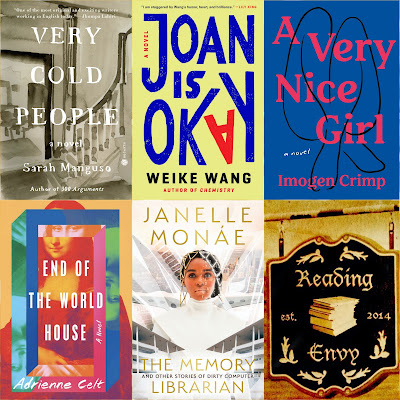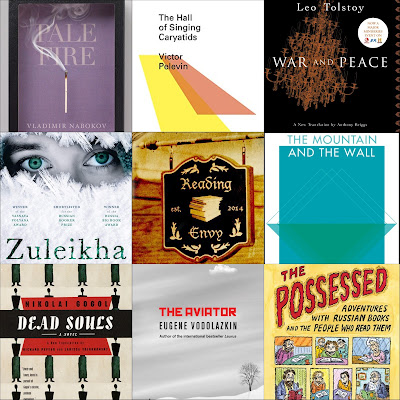A gentle reminder that all reviews can still be seen on my Goodreads profile (the review will be with the book; the format will be specified unless it's in print.) And the books with green outlines are my 5-star reads for the month!
49.
A
Dead Djinn in Cairo by
P.
Djeli Clark
⭐️⭐️⭐️⭐️
50.
Below
Zero
by Ali
Hazelwood, read by
Savannah
Peachwood
⭐️⭐️⭐️
51.
Time
is a Mother
by Ocean
Vuong, read by
Ocean
Vuong
⭐️⭐️⭐️⭐️⭐️
52.
The
Genius Under the Table
by Eugene
Yelchin
⭐️⭐️⭐️⭐️
53.
The
Angel of Khan el-Khalili by
P.
Djeli Clark
⭐️⭐️⭐️⭐️
54.
Pandora's
Star
by Peter
F. Hamilton
⭐️⭐️⭐️⭐️
55.
The
Haunting of Tram Car 015
by P.
Djeli Clark, read by
Julian
Thomas
⭐️⭐️⭐️⭐️
56.
Woman,
Eat Me Whole
by Ama
Asantewa Diaka
⭐️⭐️⭐️
57.
I
Will Die in a Foreign Land
by Kalani
Pickhart
⭐️⭐️⭐️⭐️⭐️
58.
By
Any Other Name
by Lauren
Kate
⭐️⭐️⭐️⭐️
59.
Thresh
& Hold
by Marlanda
Dekine
⭐️⭐️⭐️⭐️⭐️
60.
Wildcat
by Ameila
Morris
⭐️⭐️⭐️⭐️
61.
Whatever
Happened to Interracial Love?
by Kathleen
Collins, performed by
Nina
Collins, Cherise Boothe, Adenrele Ojo, Paula J. Parker, Desean Terry, and Dan
Woren
⭐️⭐️⭐️⭐️
62.
Lord
of the Flies
by William
Golding
⭐️⭐️⭐️⭐️
63.
The
Path to Kindness
by James
Crews (ed.)
⭐️⭐️⭐️⭐️
64.
The
Black Agenda by Anna Gifty Opoku-Agyeman (ed.)⭐️⭐️⭐️⭐️⭐️
65.
End
of the World House by
Adrienne
Celt
⭐️⭐️⭐️⭐️
66.
The
Memory Librarian and Other Stories of Dirty Computer
by Janelle
Monae et al
⭐️⭐️⭐️⭐️
67.
A
Sister's Story
by Donatella
di Pietrantonio, translated by
Ann
Goldstein
⭐️⭐️⭐️⭐️
68.
Deaf
Republic by
Ilya
Kaminsky
⭐️⭐️⭐️⭐️
69.
Heartstopper by
Alice
Oseman
⭐️⭐️⭐️⭐️⭐️
70.
Lessons
in Chemistry
by Bonnie
Garmus, read by
Miranda
Raison
⭐️⭐️⭐️
71.
Symphony
for the City of the Dead: Dmitri Shostakovich and the Siege of Leningrad by
M.T.
Anderson, read by
M.T.
Anderson
⭐️⭐️⭐️⭐️⭐️
72.
A
Master of Djinn
by P.
Djeli Clark
⭐️⭐️⭐️⭐️
73.
Red
Famine: Stalin's War on Ukraine
by Anne
Applebaum
⭐️⭐️⭐️⭐️
74.
The
Stone Collection
by Kateri
Akiwenzie-Damm
⭐️⭐️⭐️⭐️
Books read: 26
Audiobook: 6
Ebook: 11
Print: 9
Library: 6
TBR: 1
Purchased 2022: 5
Review copy: 11
Subscription: 1
1954- Club: 1
Around the World: 11
Booker International Prize: 0
Indigenous Reading Circle: 1
Indigenous Reads otherwise: 0
Melanated Reader's 20 Books by Black Women: 4
Mid-Century Women: 0
Reading Envy Russia: 5
Sword and Laser: 5
Tournament of Books: 0
Women's Prize: 0







